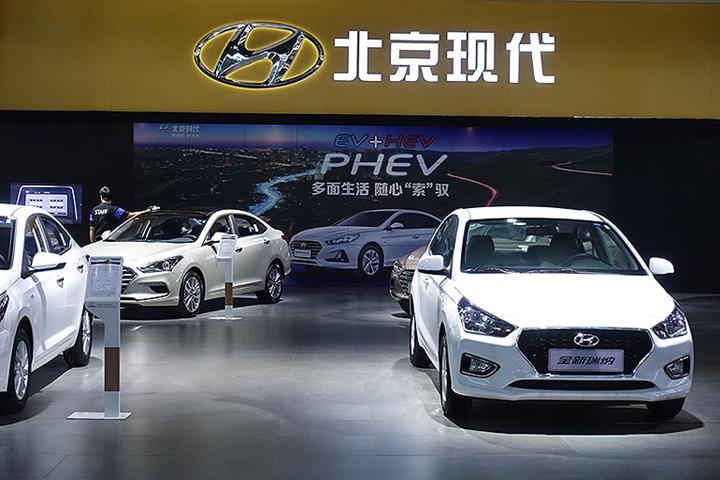 South Korean Share of Chinese Auto Market Shrinks to 1.6% in First Quarter
South Korean Share of Chinese Auto Market Shrinks to 1.6% in First Quarter(Yicai Global) May 27 -- China-South Korea car joint ventures have been forced to sell factories and stop output amid a falling share of the Chinese market, with a recent auto industry group’s report saying the market share of Korean cars fell to 1.6 percent in the first quarter, from 2.4 percent a year ago.
Globally, China was the only market where Korean cars saw a year-on-year decline in share. It was also the most difficult market for models from China-South Korea JVs, such as Beijing Hyundai Motor and Dongfeng Yueda Kia, the Korea Automobile Manufacturers Association data showed.
But South Korean models are developing better in the European and US markets, the KAMA noted. With a market share of 9.8 percent, they were among the top three for the first time in Europe.
Some 2.75 million autos were sold in the European market during the period, down 10.6 percent annually, while Korean car sales bucked the trend to surge by 21 percent on the year to 270,000.
Beijing Hyundai’s sales have been falling since 2017. It is rumored that the JV plans to shut its Chongqing plant soon, having already sold a workshop in Beijing. In February, Yicai Global reported that the Chongqing plant had stopped production.
“On an official level, it was really just a shutdown, and we haven’t received any notice about the plant’s closure,” a company insider told Yicai Global yesterday. Beijing Hyundai did not immediately respond to a request for comment.
“It seems inevitable that Korean cars will continue to suffer in the Chinese market for a period of time,” according to Kwon Oh-chan, head of the KAMA’s International Cooperation Department.
“South Korean car brands can only get out of the current market predicament by gradually stepping out of the traditional market, enhancing brand value, launching China-specific models, and increasing research and development investment in China,” Kwon said.
Judging from the Chinese market’s development trend, whether South Korean brands can achieve results in the transition to new energy vehicles will become a key factor in determining their success or failure in China, he told Yicai Global.
Editors: Liao Shumin, Peter Thomas